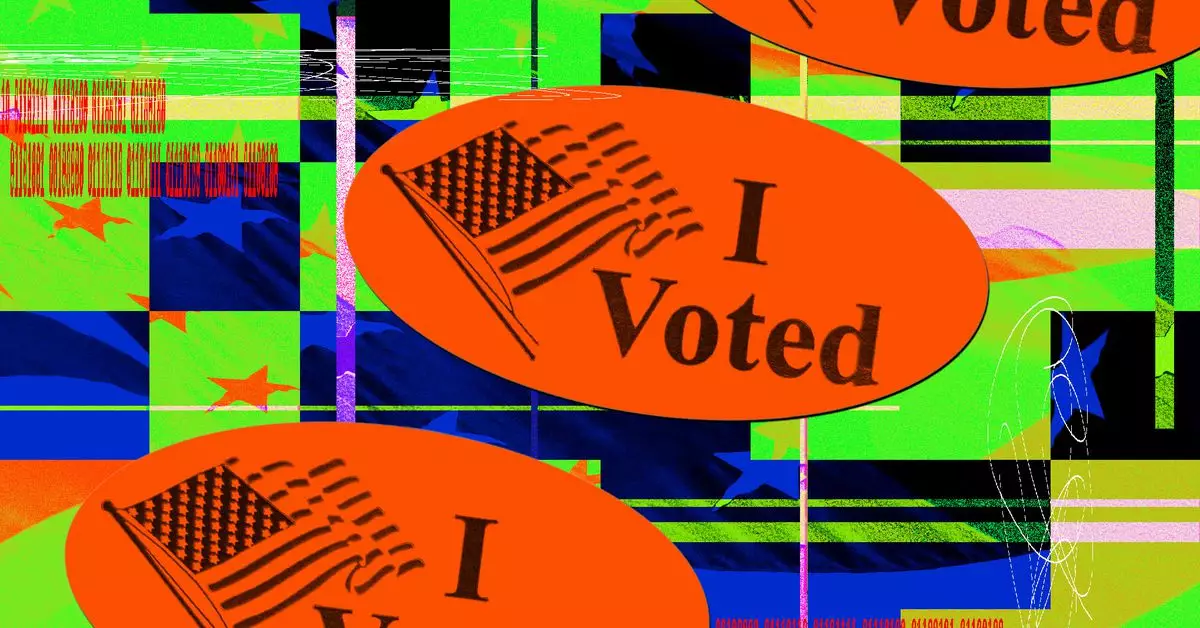In a striking move to safeguard the integrity of its democratic processes, the United States government has recently imposed sanctions on several organizations linked to foreign interference in the impending 2024 presidential election. The Treasury Department underscored the seriousness of these actions, revealing efforts by specific Russian and Iranian groups aimed at creating and amplifying socio-political discord within the U.S. This initiative by the U.S. government highlights a growing concern over foreign malign influence on domestic electoral systems.
Among the sanctioned entities is the Moscow-based Center for Geopolitical Expertise, a group reportedly connected to the Main Intelligence Directorate (GRU) of Russia. This organization developed its own artificial intelligence tools, strategically circumventing international hosting services to facilitate their disinformation campaigns. The boldness of their operations extended to the establishment of a network composed of over 100 fabricated news websites. These platforms were utilized to disseminate misleading information, aimed at swaying public opinion and influencing the electoral outcomes.
Furthermore, the organization’s manipulative tactics included a video modification that targeted a significant U.S. political figure, attempting to fabricate damaging narratives against Vice President Kamala Harris’s running mate, Tim Walz. Such actions exemplify the lengths to which these foreign actors will go to destabilize the U.S.’s electoral integrity, raising alarms about the potency of technological tools in modern disinformation campaigns.
On the other side of the geopolitical spectrum, the U.S. has also sanctioned the Cognitive Design Production Center, a subsidiary of Iran’s Islamic Revolutionary Guard Corps (IRGC). This action emphasizes the role of Iranian entities in the planning and execution of information warfare against the U.S. electoral system. The sanctions detail Iran’s continuous efforts from as early as 2023 to meddle in the election process, demonstrating that both nations are actively seeking ways to undermine American democracy.
Notably, the U.S. Department of Justice has taken legal action against Iranian nationals accused of orchestrating cyberattacks aimed at influencing political campaigns. Simultaneously, OpenAI has acted to ban accounts linked to Iranian interference operations across social media platforms, thereby preventing the spread of orchestrated misinformation. Such preventative measures underscore the urgency with which the U.S. is treating these threats.
The Broader Implications for Democracy
These developments paint a troubling picture of how foreign interference has evolved in the digital age. The concerted efforts by Russia and Iran reveal a coordinated strategy to exploit societal divisions within the U.S. by weaponizing misinformation. It raises critical questions about the effectiveness of existing measures to safeguard elections and highlights the pressing need for comprehensive strategies to combat these threats.
As emphasized by Bradley Smith, the Acting Under Secretary of the Treasury for Terrorism and Financial Intelligence, the encroachment of foreign powers into the electoral framework of the U.S. not only threatens the integrity of the elections but also aims to divide the American populace. This reality necessitates a vigilant and robust approach from governmental and technological institutions alike to secure U.S. democracy from external threats in the lead-up to the 2024 elections.

